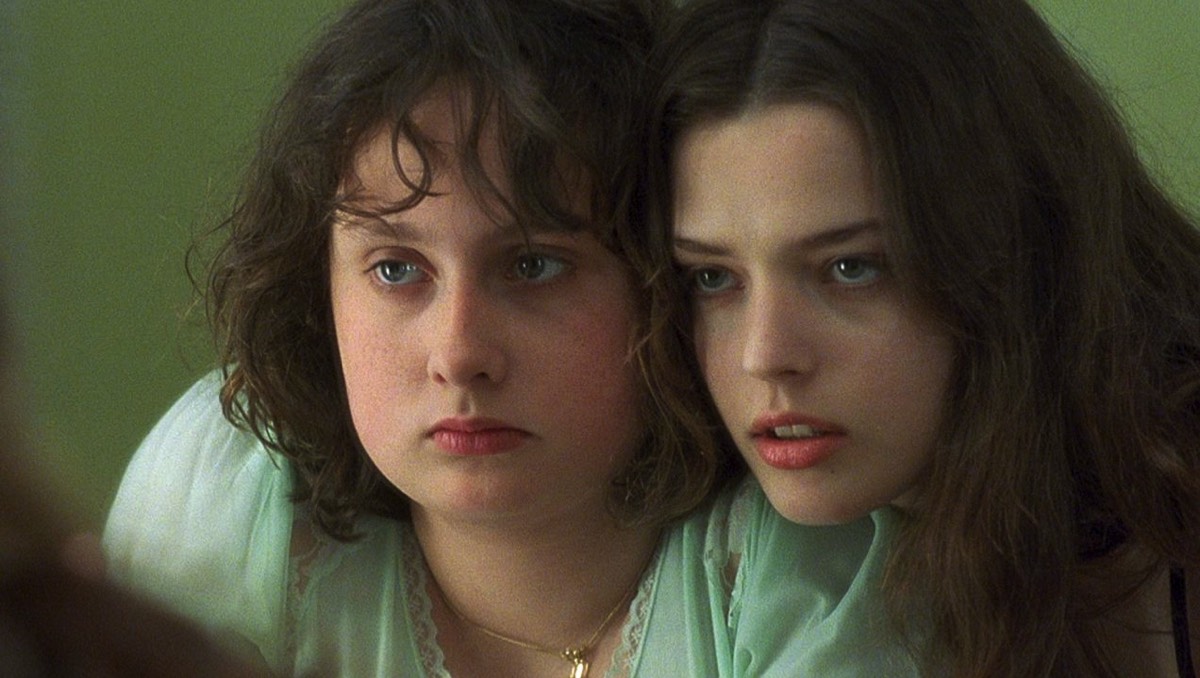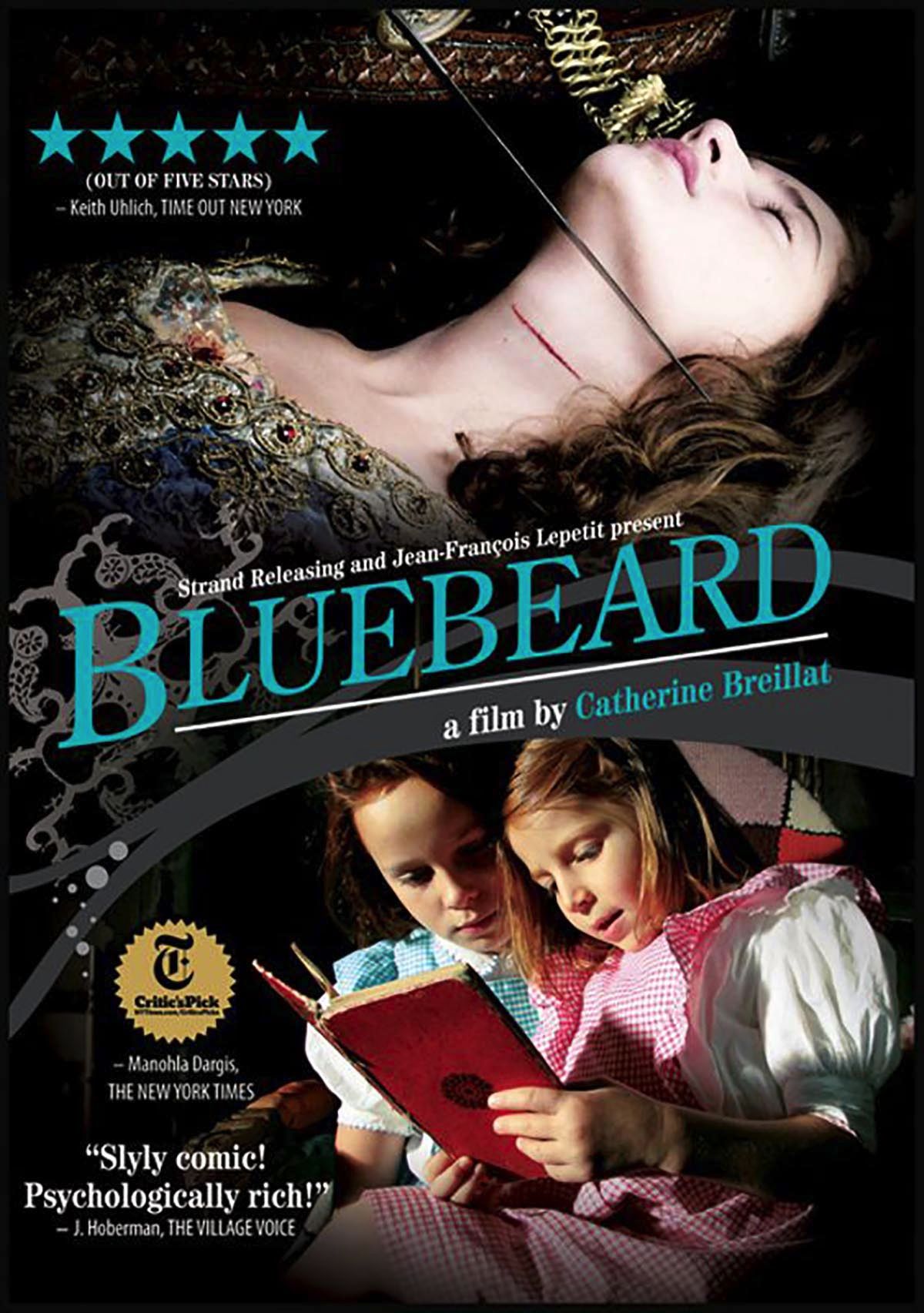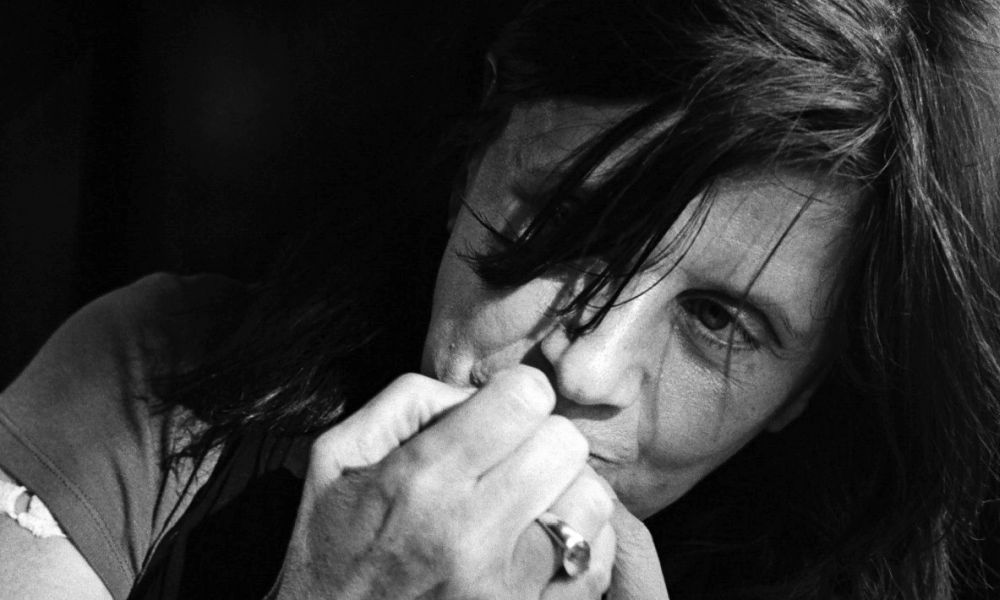"Catherine Breillat makes films that are sexual, polemical, taboo-breaking and transgressive… Breillat's films about adult sexuality are cold, punitive studies of sadomasochism and clinical dissections of the sexual act. The most controversial of these is Romance (1998), the first mainstream film to show the act of penetration outside of the grind houses." - Lloyd Hughes (The Rough Guide to Film, 2007)
Catherine Breillat
Director / Screenwriter
(1948- ) Born July 13, Bressuire, Deux-Sèvres, France
(1948- ) Born July 13, Bressuire, Deux-Sèvres, France
Key Production Country: France
Key Genres: Drama, Romance, Mature, Erotic Film, Fantasy, Psychological Drama
Key Collaborators: Jean-François Lepetit (Producer), Pascale Chavance (Editor), Giorgos Arvanitis (Cinematographer), Roxane Mesquida (Leading Actress), Laurent Dailland (Cinematographer), Agnès Guillemot (Editor), François-Renaud Labarthe (Production Designer), Ashley Wanninger (Character Actor), Rocco Siffredi (Leading Actor), Emmanuel Schlumberger (Producer), Sylvette Frydman (Producer), Annie Charrier (Editor)
Key Genres: Drama, Romance, Mature, Erotic Film, Fantasy, Psychological Drama
Key Collaborators: Jean-François Lepetit (Producer), Pascale Chavance (Editor), Giorgos Arvanitis (Cinematographer), Roxane Mesquida (Leading Actress), Laurent Dailland (Cinematographer), Agnès Guillemot (Editor), François-Renaud Labarthe (Production Designer), Ashley Wanninger (Character Actor), Rocco Siffredi (Leading Actor), Emmanuel Schlumberger (Producer), Sylvette Frydman (Producer), Annie Charrier (Editor)
"The French writer-director Catherine Breillat published her first sexually explicit novel at 17 before appearing as an actress in Last Tango in Paris (1972); both proved inspirational on her feature films, notorious for their frank depiction of sexuality from a female perspective and for their propensity to shock and provoke." - Andrew Bailey (Cinema Now, 2007)
"Perhaps no filmmaker has so audaciously explored female sexuality and the politics of sex as has Catherine Breillat. An accomplished novelist, screenwriter (cowriting films by Maurice Pialat, Marco Bellocchio, and Liliana Cavani, to name a few), and actress (whose first on-screen role was in Bernardo Bertolucci’s Last Tango in Paris), Breillat has been one of French cinema’s most fearless provocatrices, an artist obsessed with questions of intimacy and desire whose hypnotic and constantly surprising work rises to nothing less than the level of philosophy. Across a nearly 50-year career, Breillat’s films have unapologetically depicted, dissected, and condemned the plight of the female subject in a world dominated by violent, possessive, insecure, and self-interested men, through a compelling variety of angles, genres, perspectives, and stylistic approaches." - Film at Lincoln Center, 2024

Fat Girl (2001)
"Dubbed "the bad girl intellectual of French cinema" by Amy Taubin of the Village Voice, writer-director Catherine Breillat seemingly has courted controversy since her career began… For Breillat, one of the central issues in the male-female dynamic stems from the manner in which a woman must learn harsh truths about sexuality. "In love, the respect of a man is the worst humiliation a girl could experience," she has written. Indeed, one of the recurring motifs in her work is the heroine's sense of shame regarding her sexuality." - The Hollywood.com Guide to Film Directors, 2004
"Catherine Breillat is no stranger to controversy. If the French novelist and director has spent a career confronting censorship and social taboos, that has not prevented her from developing a reputation as one of the world’s most iconoclastic and widely acclaimed authorial voices. From her 1976 directorial debut, A Real Young Girl, through to 2013’s Abuse of Weakness, Breillat has continually sought to examine and reframe conventional depictions of femininity, more often than not twisting them towards provocative ends." - Ben Croll (Variety, 2019)
"Controversial auteur of adult dramas; non-naturalistic dialogue; themes of erotic desire and female sexuality; explicit depictions of sex and violence." - Geoff Andrew (501 Movie Directors, 2007)
"In her films, Catherine Breillat treats sexuality not as an object but as a subject, confronting the viewer with a female’s understanding of her own sexuality. Her subjects include the adolescent obsession with the loss of virginity (Une vraie jeune fille, 1976; 36 Fillette, 1988), female masochism (Romance, 1999), the seemingly unbridgeable gulf between an older woman and a younger man (Parfait amour!, 1996; Brève traversée, 2001), and female sexuality as a potent force that is repressed and made obscene by its patriarchal bedmate. The sexual acts in Breillat’s films are not only sexually explicit but very often unsimulated, earning her the unfortunate label of being “the auteur of porn,” obscuring a much more important reading of her work within the history of modernist filmmaking. Although much of her work focuses on women’s relationship to desire, Catherine Breillat also believes that men must re-examine their own sexuality and the way it has been affected by women’s social advancement." - The European Graduate School
"I don’t provoke, I subvert. It’s a subversive thing to do to look at something without judgment. I never try to create a scandal, contrary to public opinion." - Catherine Breillat (Slant Magazine, 2024)
"I realized to my amazement that I was indeed Pasolinian, whereas I had run after Ōshima, whose cinema I knew much better and whom I felt close to, as I did to Imamura, the other sacred monster whose Unholy Desire was part of my imaginary. But I didn’t have their carnal sweetness. Clearly, I was Pasolinian: it manifested in me as something intimate, relentless and methodical." - Catherine Breillat (Metrograph)
Selected Filmography
{{row.titlelong}}
Catherine Breillat / Favourite Films
L'Avventura (1960) Michelangelo Antonioni, Baby Doll (1956) Elia Kazan, In the Realm of the Senses (1976) Nagisa Oshima, Lancelot du Lac (1974) Robert Bresson, Lost Highway (1997) David Lynch, Ordet (1955) Carl Theodor Dreyer, Salò, or the 120 Days of Sodom (1975) Pier Paolo Pasolini, Sawdust and Tinsel (1953) Ingmar Bergman, Ten (2002) Abbas Kiarostami, Vertigo (1958) Alfred Hitchcock.
Source: Sight & Sound (2002)
L'Avventura (1960) Michelangelo Antonioni, Baby Doll (1956) Elia Kazan, In the Realm of the Senses (1976) Nagisa Oshima, Lancelot du Lac (1974) Robert Bresson, Lost Highway (1997) David Lynch, Ordet (1955) Carl Theodor Dreyer, Salò, or the 120 Days of Sodom (1975) Pier Paolo Pasolini, Sawdust and Tinsel (1953) Ingmar Bergman, Ten (2002) Abbas Kiarostami, Vertigo (1958) Alfred Hitchcock.
Source: Sight & Sound (2002)
Catherine Breillat / Fan Club
Dan Sallitt, Emma Wilson, Richard Brody, Glenn Kenny, Soham Gadre, John Waters, Amy Taubin, Peter Rist, Beatrice Loayza, Ed Gonzalez, J. Hoberman, Catherine Wheatley.
Dan Sallitt, Emma Wilson, Richard Brody, Glenn Kenny, Soham Gadre, John Waters, Amy Taubin, Peter Rist, Beatrice Loayza, Ed Gonzalez, J. Hoberman, Catherine Wheatley.
"Fan Club"
These film critics/filmmakers have, on multiple occasions, selected this director’s work within film ballots/lists that they have submitted.
These film critics/filmmakers have, on multiple occasions, selected this director’s work within film ballots/lists that they have submitted.


